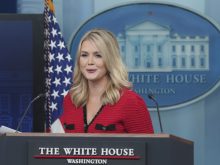The fate of the North American Free Trade Agreement could very well become the central issue in the 2019 federal election campaign.
Trade officials from Canada, Mexico and the United States failed to resolve an ongoing impasse at the negotiating table in time to present Congress with an agreement by May 17 — a deadline set by House of Representatives Speaker Paul Ryan if Congress were to vote on the deal this session.
While Mexico and the U.S. had made it clear in the lead up to May 17 that they didn’t feel a deal could be achieved by then, Canadian officials, at least those on the political side, remained optimistic.
Read Also

Soybean market still figuring out implications of China-U.S. pact
Soybean futures had a muted reaction to the U.S. trade deal with China as the market tries to figure out the nuances of the deal.
A last ditch effort by Canada, including several phone calls between U.S. President Donald Trump and Prime Minister Justin Trudeau, failed to secure an agreement.
Missing the May 17 deadline is unlikely to mean talk collapse. What it does mean is that the earliest Congress can deal with NAFTA is January 2019 — after the U.S. mid-term elections.
That could be a problem for the Liberals.
While Canadian election cycles are much shorter than their North American counterparts, meaning they don’t typically disrupt trade talks too much, domestically trade issues can sometimes take on a life of their own.
You see, unlike in the U.S. and Mexico — where trade rarely dominates an election cycle and dictates the outcome of a political campaign — in Canada political battles have been won and lost over free trade.
Heck, during the 1988 election, the Canada-U.S. Free Trade Agreement became the central election issue, where it was a nail biter at that.
Canada is an export-dependent nation. Trade is our bread and butter. The U.S. is our main customer. Until that changes, as the saying goes, every time the U.S. sneezes, Canada gets a cold.
And, while Canada has very much presented a united front when it comes to NAFTA, with Conservatives, Liberals and NDP politicians alike travelling repeatedly to Washington to promote the economic trade pact, NAFTA could very easily become a political linchpin during an election campaign.
After all, it was the Liberals who told the White House, when U.S. withdrawal was very much a possibility, that they would be “happy” to renegotiate the trade pact.
Since taking office, the Liberals record on the trade file has been hit or miss.
While few have criticized the Trudeau government’s handling of the NAFTA portfolio thus far, the governing party has faced skepticism over their “progressive trade” agenda.
Couple that with any market uncertainty, including job concerns, and an increasingly protectionist trading environment and there’s the potential the upcoming election campaign could be overrun by the trade file.
Then there’s the ongoing concern among Canadian business leaders and agriculture groups who are wondering when the Liberals plan to ratify the Comprehensive and Progressive Trans-Pacific Partnership, which almost imploded after the prime minister missed a meeting with Japanese President Shinzo Abe.
Canada has said it wants to be among the first six countries to sign the trade pact. As of May 18, no legislation had been presented to the House of Commons for consideration.
Mexico has already ratified the trade agreement. Japan is not far behind, as are several other countries. With four weeks left in the parliamentary sitting calendar, it will be impossible for the government to pass the legislation before it rises for its summer recess.
Nor can one forget the China question. Ottawa and Beijing continue to engage in preliminary trade talks, but formal talks have yet to begin.
International Trade Minister Francois-Philippe Champagne has promised to diversify Canada’s trade interests — including ongoing discussions with China — in the face of ongoing NAFTA uncertainty. Agriculture Minister Lawrence MacAulay has flagged China as a market with exceptional market potential for Canadian food and agricultural goods.
Not every Canadian, though, is keen about trading with China because of ongoing concerns about human rights. This is a public trepidation that all political parties are aware of.
Canada hasn’t had a trade-centric election in some 20 years. Depending on what happens in Washington in the next little while, that drought could potentially end.














